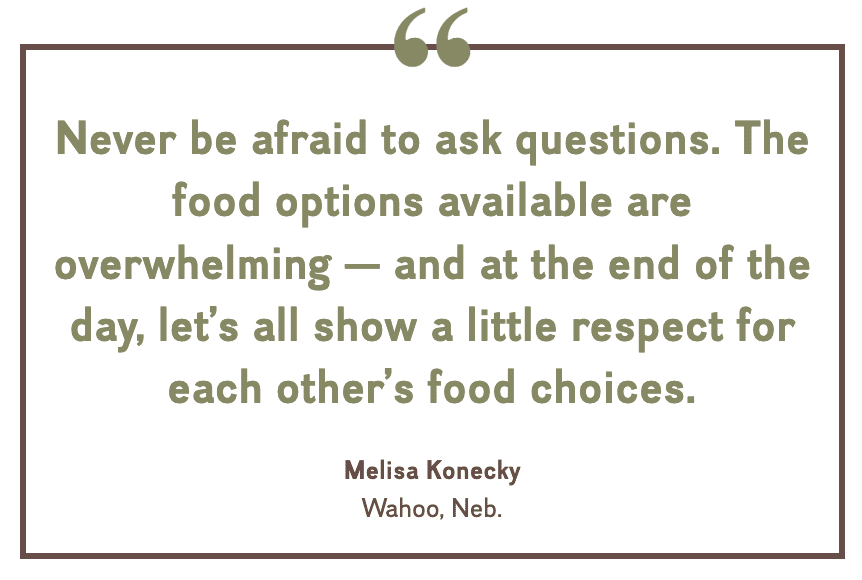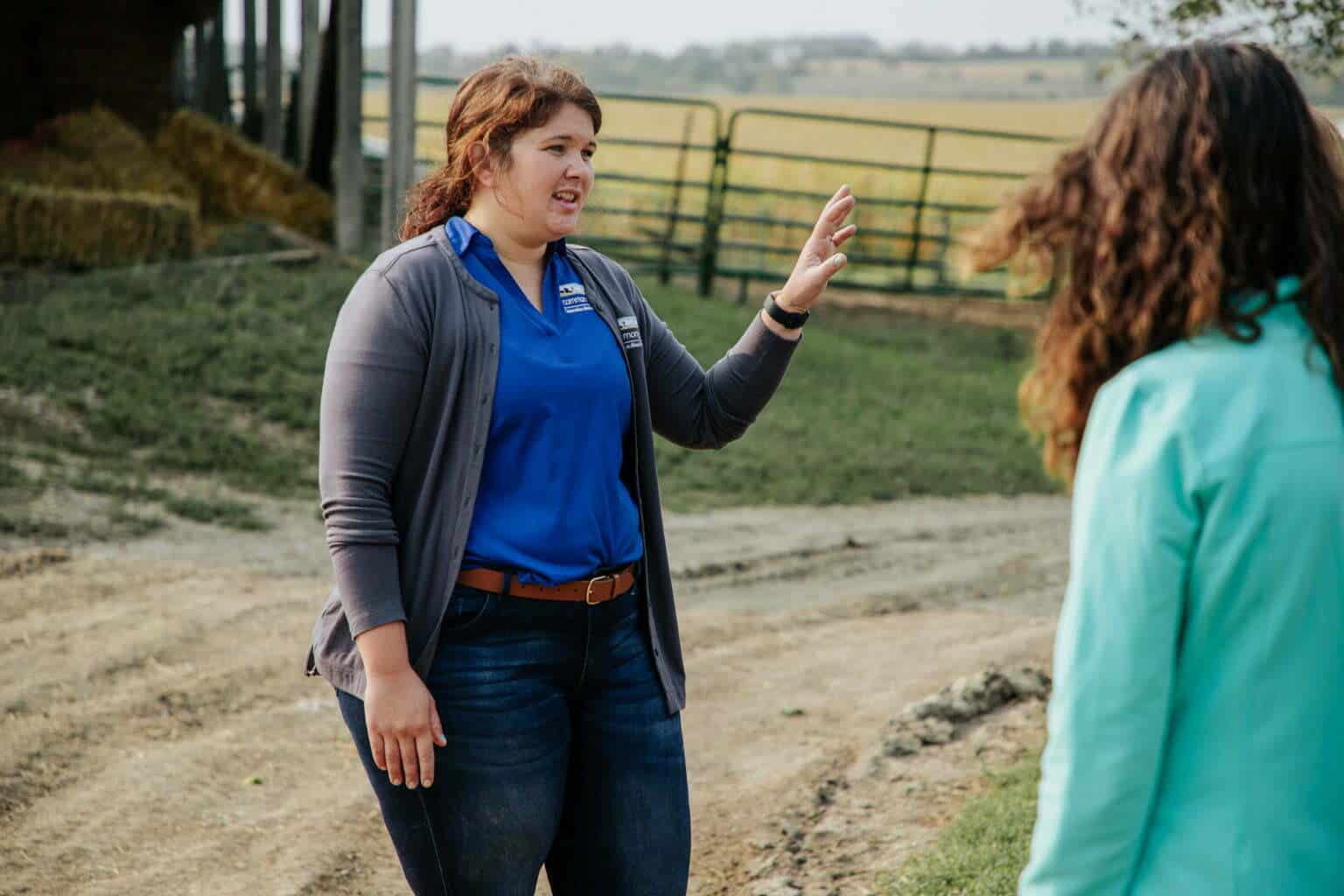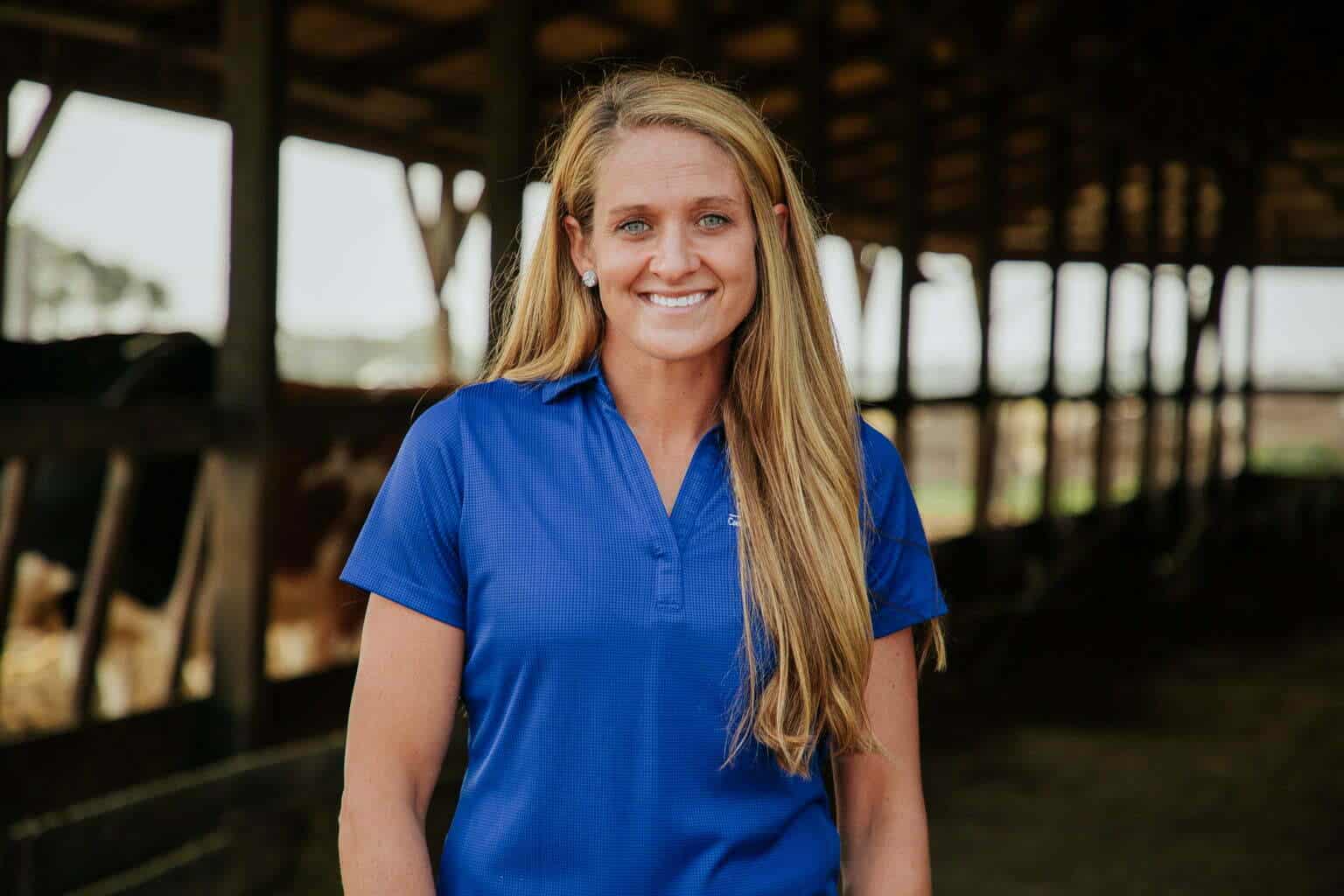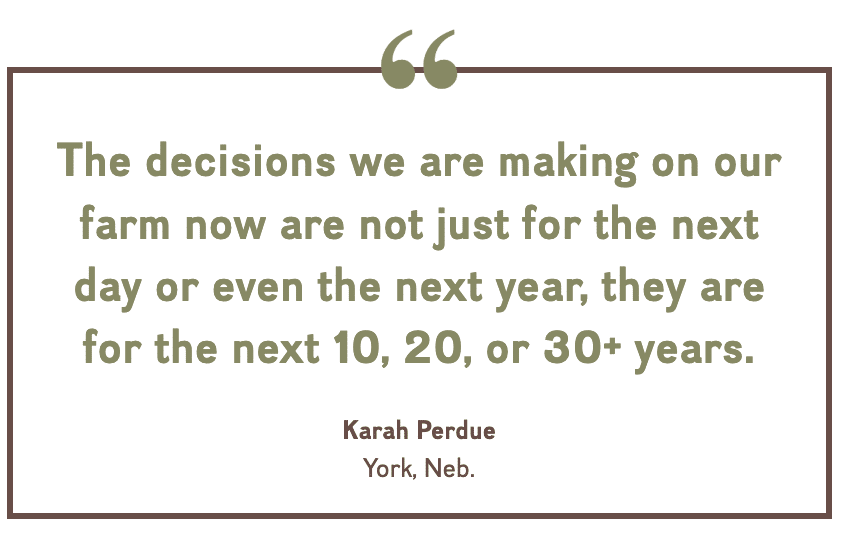Melisa: I love hearing that people care about the well-being and treatment of animals. Farmers, as a whole, have great respect for their livestock and treat them very well. Unfortunately, there are a few bad apples, but this is not representative of American agriculture. Farmers take great pride in the care and well-being of their herds or flocks. Ask any livestock farmer about their animal care practices, and you’re likely to get the full story!
For example, we often hear about how dairy cows are separated from their calves. What we don’t hear is that dairy cows aren’t the most maternal creatures, sometimes causing harm to their calves without meaning to. Not to mention separating the calf allows us to individually monitor the health of each calf.









